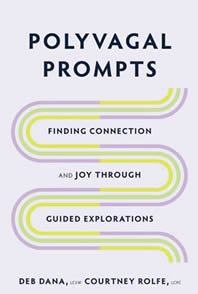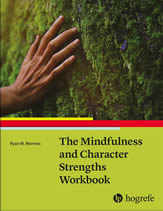The Feeling Brain: The Biology and Psychology of Emotions
Drs. Elizabeth Johnston and Leah Olson highlight the work of key researchers, describing their text as a “tasting menu that introduces the variety of delicacies available in the vibrant and growing field of emotion research” (xvi). Drawing from researchers dating back to Darwin, Johnston and Olson weave together a myriad of theories that seek to define emotion in various ways. The authors offer comprehensive coverage of what they view as the most profound contributions to affective neuroscience, hoping to engage their audience in a way that goes beyond a mere question-answer approach.
The Brain’s Way of Healing:
Dr. Norman Doidge, author of the New York Times Bestseller, The Brain That Changes Itself, provides an eloquent and fascinating synopsis of the current scientific understanding of the process of neuroplasticity. With lucid language, Dr. Doidge explains this complex concept with the goal of educating and enlightening patients, family, and clinicians of the many possibilities of recovery.
Relational Psychoanalysis and Psychotherapy Integration
Relational Psychoanalysis and Psychotherapy Integration details how psychoanalysis can be integrated with other forms of non-analytical psychotherapeutic techniques.
Eat What You Love, Love What You Eat, For Binge Eating
Eat What You Love, Love What You Eat, for Binge Eating: A Mindful Eating Program for Healing Your Relationship With Food and Your Body is designed to assist readers in altering their eating habits. As the title implies, the author incorporates mindfulness exercises for readers to practice at their own pace to increase their self-awareness of appetite and compulsive eating habits.
Less Medicine More Health:
Less Medicine More Health: 7 Assumptions That Drive Too Much Medical Care comes at a time in medical history of great skepticism and distrust of previously lauded medical practices. In spite of this, I feel this book is a far cry from other less founded movements such as the anti-vaccination movement.
Simple Self-Care for Therapists: Restorative Practices To Weave Through Your Workday
The primary concern of Simple Self-Care for Therapists is to break down Bush book for website effective methods to combat burnout and work-related stresses specific to practicing psychotherapists. In addressing this, Bush outlines myriad common scenarios coupled with personal anecdotes to illustrate what the scenarios might look like.
Anna Halprin: Dance, Process, Form
Anna Halprin: Dance, Process, Form details the life and work of dancer and artist Anna Halprin. Halprin was an early innovator in dance therapy, using the medium as a form of personal exploration through artistic and physical expression. Her work with groups of people, either for specific art pieces or in experimental workshops, was highly influential for the development of both dance therapy and avant-garde expressionism.
Getting Things Done: The Art of Stress-Free Productivity
The million-dollar question is: how do we become more productive while reducing stress and anxiety?
David Allen provides an answer to this question with a simple and yet efficient principle: write things down as you think of them. In a nutshell, Allen’s system of productivity focuses on getting things out of your head, organizing them, and getting them done.
Four Ways to Click: Rewire Your Brain for Stronger, More Rewarding Relationships
Four Ways to Click: Rewire Your Brain for Stronger, More Rewarding Relationships is a self-help book designed to illustrate, via a strongly neuroscience-based framework, the nature of reader’s personal relationships. The goal of the book is, ostensibly, to identify the reader’s strong and weak relationships through included evaluations and map out actions that can improve them. The explicit goal is to change the way readers’ brains are wired through interventions that target four specific brain regions as outlined in the book’s “C.A.R.E. Plan.”
Your Life After Trauma: Powerful Practices to Reclaim Your Identity
Your Life After Trauma: Powerful Practices to Reclaim Your Identity is designed to help in “post-trauma identity development.” Eclectic in its methods, it uses motivational interviewing and incorporates cognitive behavioral, existential, gestalt, narrative, psychodynamic, psycho-educational, transpersonal, and neuropsychological frameworks into its exercises, questions, and passages.











